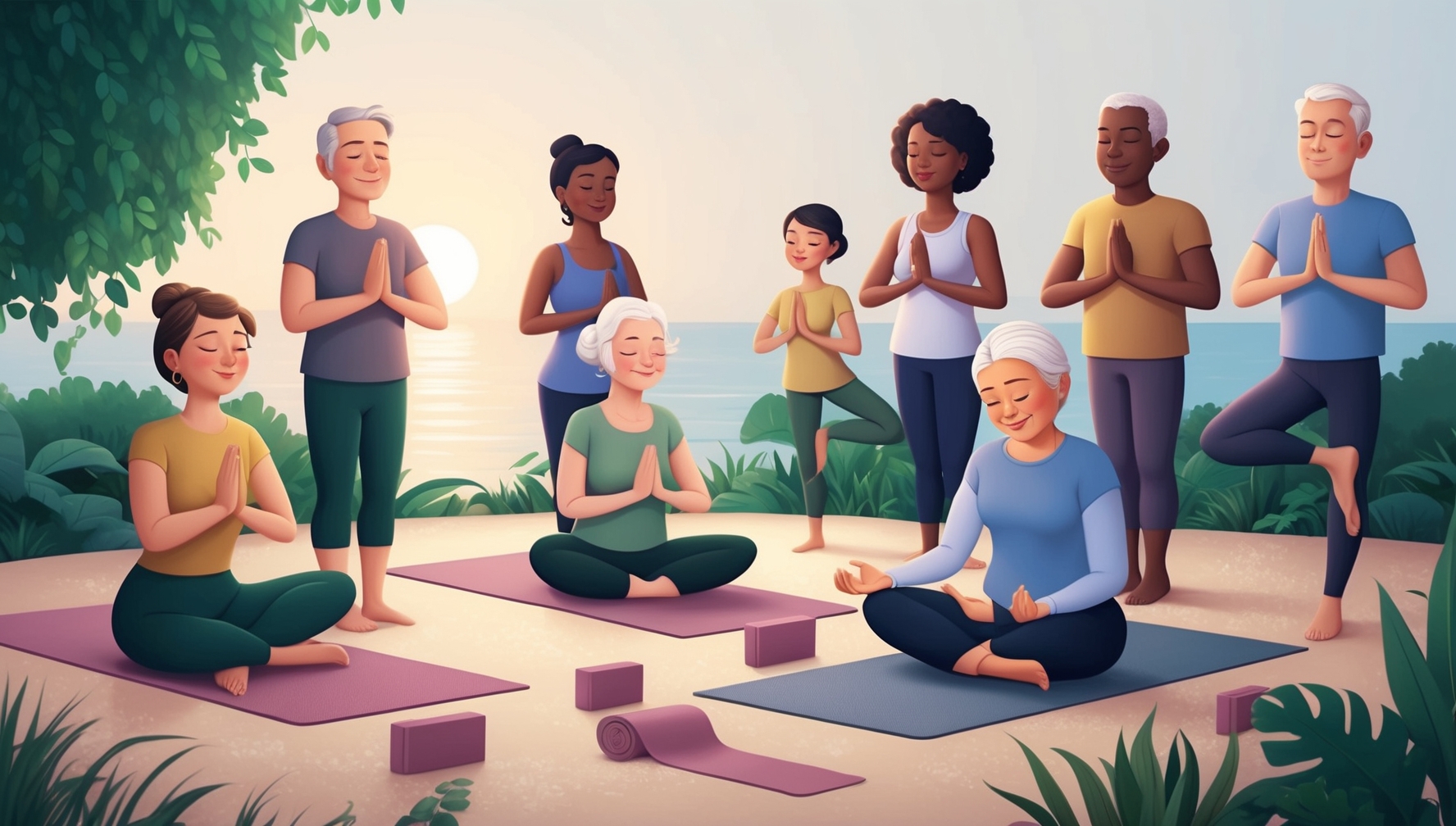In today’s fast-paced world, where the rise of e-sports and technology has led to more sedentary lifestyles, maintaining physical and mental health becomes increasingly important. Yoga, a practice that combines physical postures, breathing techniques, and meditation, offers numerous health benefits that can significantly enhance well-being, especially for adults over 30. This article explores the key advantages of incorporating yoga into your routine as you age.
1. Increased Flexibility and Balance
One of the most recognized benefits of yoga is its ability to improve flexibility and balance. As adults age, flexibility tends to decline, which can lead to reduced mobility and an increased risk of falls. Regular yoga practice can help counteract this decline by stretching and strengthening muscles, improving range of motion, and enhancing balance. Poses like the Tree Pose and Downward Facing Dog are particularly effective in promoting stability and flexibility, making daily activities easier and safer.
While yoga can greatly improve flexibility and balance, some adults may also be interested in incorporating other forms of exercise, such as running, into their routine. For those wondering how to start running, yoga can serve as an excellent complementary practice by improving joint flexibility and muscle strength, which are crucial for injury prevention in runners.
2. Strengthening Muscles and Bones
After the age of 30, adults begin to lose muscle mass, which can lead to decreased strength and mobility. Yoga can help build and maintain muscle strength through various poses that engage multiple muscle groups. Additionally, weight-bearing yoga poses can improve bone density, reducing the risk of osteoporosis and fractures later in life. A study found that regular yoga practice led to increased bone density in women, highlighting its effectiveness as a strength-building exercise.
3. Improved Posture
With the prevalence of sedentary lifestyles and prolonged sitting, poor posture has become a common issue for many adults. Yoga emphasizes body awareness and alignment, helping practitioners develop better posture. Improved posture can alleviate neck and back pain, increase energy levels, and enhance overall comfort in daily activities. Poses such as the Cat-Cow and Child’s Pose are beneficial for promoting spinal alignment and relieving tension in the back and neck.
4. Stress Reduction and Enhanced Mental Health
Yoga is well-known for its ability to reduce stress and promote relaxation. The combination of physical movement, breath control, and mindfulness helps activate the parasympathetic nervous system, which induces a state of calm. Regular practice can lower cortisol levels, the hormone associated with stress, and improve overall mood. Furthermore, yoga has been shown to alleviate symptoms of anxiety and depression, making it a valuable tool for mental health management.
5. Better Sleep Quality
Many adults struggle with sleep disturbances, particularly as they age. Yoga can improve sleep quality by promoting relaxation and reducing anxiety. Poses that focus on gentle stretching and deep breathing can help calm the mind and prepare the body for restful sleep. Research indicates that individuals who practice yoga experience fewer sleep disturbances and improved sleep quality, making it an effective remedy for insomnia.
6. Enhanced Cognitive Function
Maintaining cognitive health is crucial as we age. Studies suggest that yoga can support brain health by improving memory and cognitive function. The practice encourages mindfulness and concentration, which can enhance mental clarity and focus. Additionally, yoga has been linked to a reduction in cognitive decline, making it a beneficial practice for older adults looking to keep their minds sharp.
7. Pain Relief
Yoga can be an effective method for managing chronic pain conditions, such as arthritis and lower back pain. The gentle stretching and strengthening exercises can improve flexibility and reduce stiffness, leading to decreased pain levels. Many practitioners report significant relief from chronic pain through consistent yoga practice, making it a valuable addition to pain management strategies.
Conclusion
Incorporating yoga into a regular fitness routine can provide numerous health benefits for adults over 30. From increased flexibility and strength to improved mental health and sleep quality, yoga offers a holistic approach to well-being that can enhance the quality of life as one ages. Whether you are a beginner or an experienced practitioner, making yoga a part of your lifestyle can lead to lasting health improvements and a greater sense of balance and harmony.
